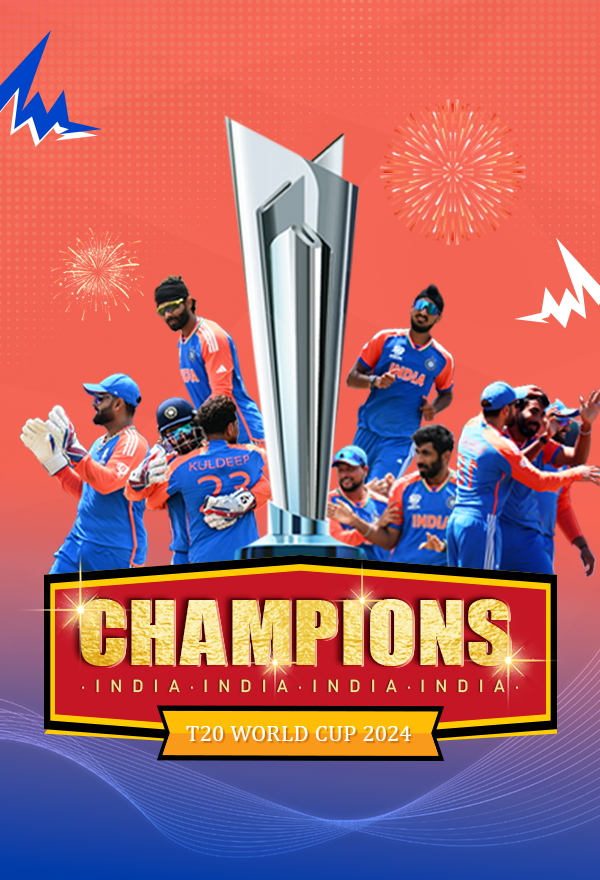Trent Boult adjusts his cap, puts his phone in his pocket, and says with a smile, “I always try to come into the IPL with an open mind of trying to get better.” Boult, having transitioned to freelancing from his central contract with New Zealand Cricket to spend more time with family, finds himself constantly on the move due to cricket commitments worldwide.
Despite ‘dying to see’ his three young boys, he remains passionate about the game.Currently playing for the Rajasthan Royals in the IPL, he gears up for the T20 World Cup with New Zealand in June, followed by the Major Cricket League.
Juggling these commitments is a challenge, but Boult’s love for bowling and competing against the best keeps him going.In a chat with Sportstar in Jaipur, he reflects on his career and the impact of T20 cricket on fast bowlers.
It has been quite a satisfying campaign for the Rajasthan Royals so far. What are your thoughts?
It has been a great start. We won the first four games, and I don’t think we could have asked for a better beginning. The team is working together well, and we understand that it’s a long tournament.
We had a good start last year too, so we’re not looking too far ahead, and we’re just going to be ourselves at the moment.As the most experienced fast bowler in the Rajasthan Royals team, how do you pass on your knowledge to the young players?
I think I offer a level of experience, and this is technically my 10th IPL. My first IPL was in 2015 for the Sunrisers Hyderabad. I was so excited because I had the opportunity to bowl with Dale Steyn and open the bowling with a guy that I never thought I would play against, let alone with.
I think that’s the best part of this competition: it gives you the chance to bowl with bowlers you’re not used to, bowlers you’ve played against, and then obviously inspire, coach, and mentor younger bowlers coming through. I’ve had the honour of bowling with a lot of great bowlers throughout my years: (Kagiso) Rabada, (Jasprit) Bumrah, and Steyn, to name a few. And then I moved into my experiences here at Rajasthan; there have been some brilliant up-and-coming bowlers that have represented India over the last couple of years, and there’s a nice balance with a guy like Sandy (Sandeep) Sharma, who has played a lot of cricket.
He debuted in the IPL in 2013, which was a long, long time ago. They all offer a lot of experience. I always try to come into these tournaments with an open mind, trying to get better, trying to learn, and answering questions from any bowler. This year, it’s been exciting. We’ve got a find in Mr. Burger (Nandre Burger), as we call him, and then backed up nicely with Avesh Khan, who I have played with before. Yeah, spin bowlers (Ravichandran Ashwin and Yuzvendra Chahal) need no description or introduction, so it’s a nice balance.Do you think that T20 cricket, with its cap of only four overs, has given a fresh lease of life to fast bowlers in terms of longevity?
No, I don’t think that way, to be honest. Jimmy Anderson aside, I don’t think anyone can get close to what he’s achieved over his 20-something-odd career. He’s an inspiration to every fast bowler out there. He does the yards, has played 20 years of Test cricket, and has claimed 700 wickets for a reason.
When it comes to the T20 format, apart from the obvious advantage of being a shorter format, I think it’s still a very demanding game. With the amount of franchise cricket around the world, guys seem to be playing 50-plus T20 games a year. This part of the world is a tough place to play, but I don’t think it gets any better than the IPL. It’s a tournament everyone wants to be a part of. You’re playing against the best players in the world, and we all know the crowds, the passion, and the following that cricket gets here. So yeah, there are a lot of positives to the format.
If you could shed some light on your preparation process ahead of the IPL or any major international events?
I think the positive of playing so much T20 cricket is that, generally, you are up to speed with moving around different franchises and different tournaments around the world. Yeah, it’s a format that you think is only four overs for a bowler. Speaking from experience, I think you need to do the work and make sure you are conditioned to be able to play three or so T20 games in a week. And you are adding the challenges of travel, diet, sleep, climate—all these things that come into effect with touring the subcontinent. It’s a combination of things that you need to get right. Then again, you’re playing the best players in the world in a competition like the IPL. So it’s a great challenge, but something that I’ve embraced. I’ve moved away from potential cricket and my career as such with the New Zealand cricket team, but I still definitely have ambitions to represent my country.
(Moving away from the contract) was basically to get a good opportunity to see more of the world, play a little less cricket, and see my family a whole lot more. So yeah, no regrets from my end.
Trent Boult: “I think the positive of playing so much T20 cricket is that, generally, you are up to speed with moving around different franchises and different tournaments around the world.”
| Photo Credit:
R V Moorthy / The Hindu
Trent Boult: “I think the positive of playing so much T20 cricket is that, generally, you are up to speed with moving around different franchises and different tournaments around the world.”
| Photo Credit:
R V Moorthy / The Hindu
As a fast bowler, what are your thoughts on the Impact Player rule in the IPL? The house seems to be divided…
I think it has made a huge difference. It has allowed teams to equip batters that can bat down to No. 10. It shows in the scores. I think the boundary counts are higher than they have ever been, and we have already seen a couple of 250-plus scores. When it comes to analysing data from a bowling point of view and looking at how the guys get out and where they had sixes, etcetera, I think it’s skewed massively because there’s the data that has been there over years with standard 11 players, and now you can slightly manipulate that with the balance of the sides. I’m sure it’s what everyone wants to see. They want to see high-scoring games. They want to see record chases, and I think that’s what we’re going to see happen more often.
And what are your thoughts on the newly introduced two bouncers per over rule?
Two bounces in an over is a good initiative. The grounds are pretty small. The balls aren’t moving around as much as they have in previous times, and it just gives the bowlers another card up their sleeve to try to be that little bit more unpredictable. So I’m sure it will have a good effect throughout the tournament.
Many believe that Shane Bond joining the Royals as the bowling coach has helped the fast bowlers immensely. You have had a long association with him—in the New Zealand team and later at the Mumbai Indians. What does Bond bring to the table?
I have had a relationship with Shane for probably a dozen years, and he’s great. As a player, he’s very experienced; he was a very skilled bowler. One of the best things he brings to the table is his level-headedness. He is very calm, and the tactics that he brings to the table are incredible.
This game is about tactics. I always think we overcomplicate it as bowlers by trying to bowl too many (types of) deliveries in one over. Some of the best bowlers in the world, Glenn McGrath and Brett Lee, for instance, are the masters of a couple of deliveries, and they have chosen them very well. That’s where Bondi comes into it very, very nicely. He researches the players and has a good ability to bond with all the bowlers that he works with. I think that is important when it comes to moving around franchises and dealing with different squads and different personalities every year. And it’s no wonder why he’s been so successful being a part of the IPL for 10-plus years as well.

Trent Boult was released from his central contract in 2022 to spend more time with his family and to play in franchise leagues around the world.
| Photo Credit:
K MURALI KUMAR
Trent Boult was released from his central contract in 2022 to spend more time with his family and to play in franchise leagues around the world.
| Photo Credit:
K MURALI KUMAR
Now that you are a freelancer, how do you manage your workload and ensure that you make yourself available for the leagues and also for New Zealand?
There are no shortcuts. I enjoy hitting the gym. I enjoy marking out the cones and doing the running, and I love bowling, so that’s why it has never been so much of a chore for me. You have to move with the times.
I think you can’t be complacent and just come to the table with the same plan every time. I spent a lot of time with DJ (Dwayne) Bravo over the last couple of years, and I think he’s an inspiration for taking his game to the next level. He has adapted to his game around the world, and he’s played 600 T20s for that reason, and he still has it. So, for me, it’s about taking the lessons from the likes of those guys and just trying to be better every game.
As one of the favourites, New Zealand has been unable to advance beyond the knockout stage in ICC events. With the T20 World Cup on the horizon, what are your expectations for the team?
I have always thought we have a successful record in ICC events, and that comes down to the fact that it turns out to be very simple equations, like winning a game to reach the semifinals or the final. And, in those situations, I think New Zealand plays their best cricket. They are a very well-planned side. They are a side that’s equipped with some of the best players in the world and definitely, punch for punch, can take on any team when it comes to that.
We are not looking too far ahead in the T20 World Cup. The tournament is quite long, consisting of 20 teams, including some lesser-known nations that have yet to show their full potential. However, there are also some quality teams participating. Therefore, it will require a lot of hard work to succeed, especially during the must-win games. Nevertheless, I’m confident that New Zealand can compete with any team in the world.













